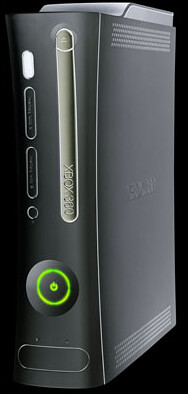There has been a lot of talk recently about HTPC extenders that work with Microsoft's MediaCenter software. Now with Linksys getting out of the MC extender business and HP no longer making their MediaCenter extenders and TVs, many Media Center users are left to wonder who (or what) will pick up the slack? Where will Media Center users get reasonably priced, powerful HTPC extenders that work with their Vista MC and Windows 7 MC?
If you aren't sure what I mean by extender, here's a quick definition from Microsoft's perspective: A Windows Media Center Extender is a hardware device that, when connected to a TV, gives you the ability to enjoy the Windows Media Center experience and media on that TV, even though your Windows Vista-based PC is in another room.
Is the Xbox360 the Answer?
The typical answer that question is the XBox360 fits that need and provides Microsoft with the income they need. While I hear the XBox 360 is a good extender that would work in a family or game room and hey it plays games too right? But noise for me would be a problem and honestly, if I want an extra feature on my HTPC extender for my living room or bedroom it would be a Blu-Ray player - not a game machine.

Or is the answer "Softsled?"
The next most frequent answer I hear is this: "Now Microsoft should finally give us softsled." Softsled is Microsoft's name for software-based extenders - being able to use any computer, put in "softsled" software and it works as an extender to your HTPC. No needing to copy recorded TV shows from your server to the other PC like you do now. This is a feature offered by Snapstream and SageTV for years. I agree opening up to softsled is a good idea and something Microsoft should have done a long time ago, but I doubt it will happen. I also don't believe it is the complete answer and here's why.
Softsled doesn't give you that inexpensive, silent and nearly trouble-free extender like a CE device can. It will work for many hard-core enthusiasts, but I'm a firm believer in making the HTPC setup as easy to set up and maintain and the best way to do that in my opinion is with a hardware-based extender. I know many will disagree with me on this of course, but I really do believe this and my three SageTV HD200's are proof in that.
So beyond the XBox360, MediaCenter users aren't left with many options.
Microsoft seems to be having difficulty getting hardware vendors to create the perfect HTPC extender when they have to compete with Microsoft's very own XBox360 - doesn't seem fair when you think about it. So what's Microsoft to do about it?
My Suggestion to Microsoft
If I were on the Ehome management team here's what I would do: I would follow the model of the XBox 360 and the SageTV HD Extenders and handle the extenders as an "inside" device. No more Linksys or D-Link extenders - they would be Microsoft Xtender 100 and Microsoft Xtender 200 for instance. Of course the hardware itself would be made in China by a company that makes most of them anyway using the latest Sigma chipsets. Then Microsoft would brand the thing with their name and the MediaCenter logo. Microsoft's MediaCenter team would handle the firmware updates too.
The advantages of this are obvious. Microsoft gains more control over it's MediaCenter product including the support and pricing of the hardware. They also would be able to sell them at a lower cost by eliminating the additional company. I would think this would also give Microsoft the ability to better integrate their other products such as Zune into the new products. I don't see a lot of downside to this - especially given the lack of extender hardware options out there.
My glass half full self hopes that maybe Microsoft is already moving this direction. If so, that could be one explanation for the recent moves by Linksys and HP. I kind of hope Microsoft is secretly preparing to release their new-spangled Microsoft Xtenders and to make enthusiasts even happier softsled as well. Take those two things and add in the availability of satellite tuners and you have yourself a very positive MediaCenter future. That's what I'm hoping but I'm not holding my breath for the moment.
